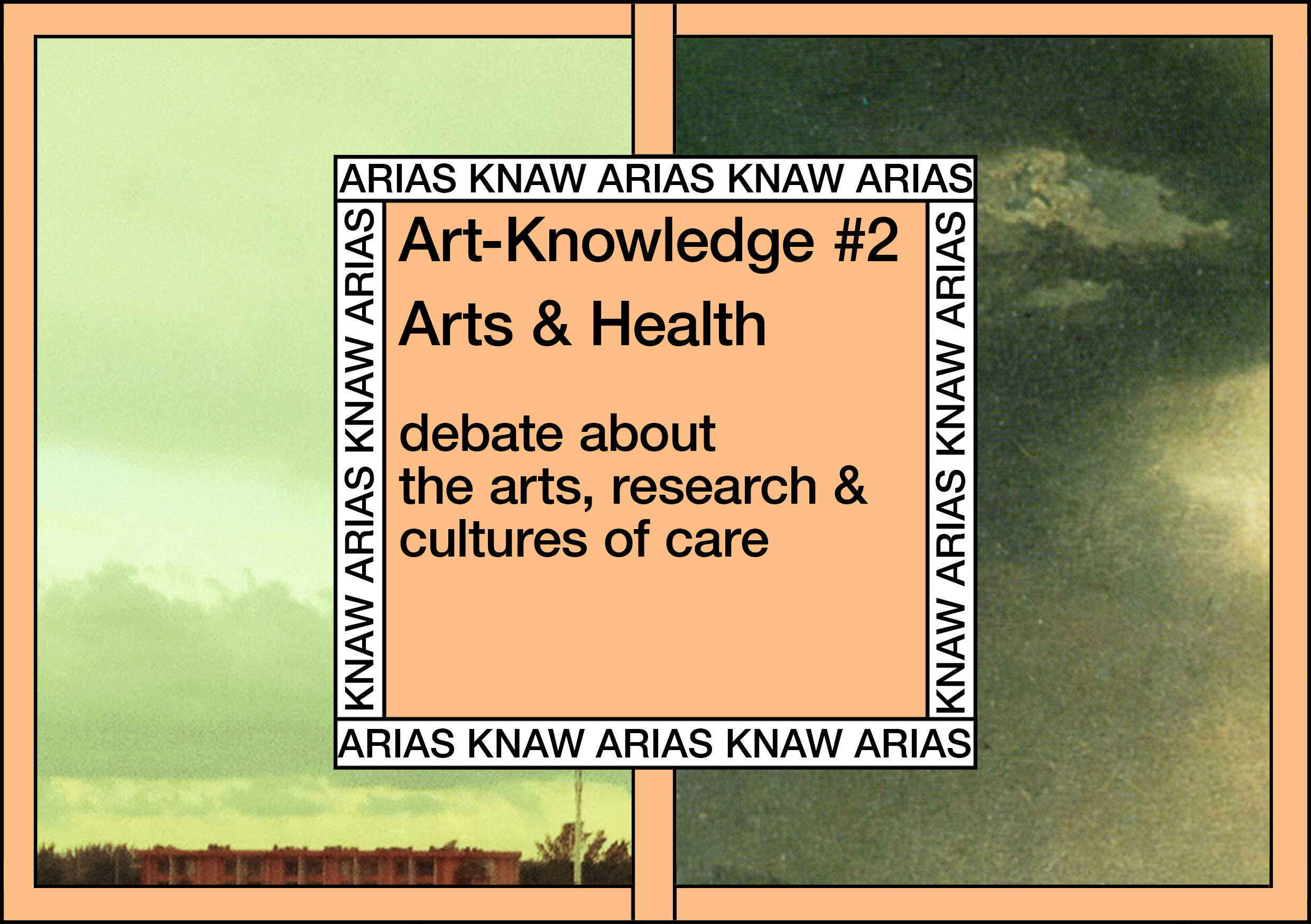29 March 2018: Art-Knowledge #2 Arts & Health: Debate about artistic research & cultures of care
ART-KNOWLEDGE #2 Arts & Health: Debate about artistic research & cultures of care, KNAW & ARIAS.
With: Yvonne Dröge Wendel, Ana María Gómez López, Rachel Spronk, Paul Gomes, and as moderator: Patricia Pisters (University of Amsterdam)
How do the arts and artistic research contribute to knowledge about health, illness and care? Over the past decades, an emerging field of ‘medical humanities’ has increasingly argued for a different perspective on medicine from fields ranging from philosophy and anthropology to sociology and cultural analysis. This debate showed three examples of special ways in which the arts offer a different understanding of patients, doctors and of care as an embodied practice.
In the first part of the evening artist Yvonne Dröge Wendel re-examined her award-winning work ‘De Coupé’ (together with Lino Hellings), a passenger train carriage placed in a nursing home in Delft. Ten years after instalment, Dröge Wendel asked how we should understand the success of this intervention: how is ‘therapeutic value’ measured? Next, artist Ana Maria Gomez Lopez discussed how we can ask new questions about the human body by re-activating histories of medical instruments and by doing self-experimentation. In the last part of the evening, anthropologist Rachel Spronk and filmmaker Paul Gomes invited the audience to discuss a work-in-progress of theirs, a film installation about surgery, sickness and death. In 2017 they started filming the daily life of a hospital in northern Nigeria. As an extremely impoverished environment the hospital manages to survive without structural resources. In their work as filmmaker and scholar, Paul and Rachel are concerned with the question of representation, that is, how to represent the subjects in their work without falling into stereotypes? Collaborating on this film installation revealed their disciplinary perspectives and the challenge of joining these different ways of working.
About the speakers
Yvonne Dröge Wendel lives and works in Amsterdam. She is trained at the Gerrit Rietveld Academie in Amsterdam and was an artist in residence at the Rijksakademie in Amsterdam (1993-1994) and Delfina Studios in London (2002-2003). She is currently working on a PhD artistic research project at the University of Twente. She is also head of the department of Fine Arts at the Gerrit Rietveld Academie. She publishes art books, features frequently in solo and group exhibitions, and engages on a regular basis with the public in public spaces. In 1994 she won the Prix de Rome in the fine arts and theatre and in 2016, the Dr. A.H. Heinekenprijs.
Ana Maria Gomez Lopez is currently a resident artist at the Rijksakademie van beeldende kunsten in Amsterdam. In her work, she treads the precarious balance between scientific self-experimentation and historic investigation to question limits in the concept of life cycles. She completed her MFA at the Yale University School of Art, as well as undergraduate and master’s degrees in anthropology at the University of Pennsylvania. She has carried out artist residencies at the Skowhegan School of Painting and Sculpture, the Beinecke Rare Books and Manuscripts Library, and the Max Planck Institute for History of Science. In 2015, she was the recipient of the Premio Nacional de Artes (National Award in the Arts) from the Universidad de Antioquia in Colombia.She is currently a researcher in residence at the Rijksmuseum Boerhaave in Leiden.
Rachel Spronk is associate professor at the anthropology department of the University of Amsterdam. She is trained as an anthropologist and doing interdisciplinary research on culture, gender and sexuality. Her research focuses primarily on the intersection of three scholarly fields – anthropology, gender and sexuality studies, and African studies. Her various research projects evidence a concern with the historical trajectories that have shaped the present, the production of knowledge about gender and sexuality and, ultimately, how the lived experiences of people inform our theoretical models. Overall, she investigates the interface between sexuality and the middle class in Ghana and Kenya, examining problematic assumptions behind both terms.
Paul James Gomes is an independent film producer and film director from Dhaka, Bangladesh, currently residing in Edinburgh. With a background in documentary filmmaking, Gomes recently expanded his practice to include video art. Having moved from Bangladesh to the UK, the main focus of his current work is migration and the understanding of home. On the occasion of his residency at the British School at Rome, the artist created two video installations: Prego Selfie (2015) and Roma Sub Rosa (2015) that explore the simultaneous visibility and invisibility of the large community of Bangladeshi immigrants present in the streets of Rome.
Four evenings on Art-Knowledge by ARIAS & KNAW
What can the sciences learn from the arts (visual and performing arts, literature, architecture, music etc.)? And what can the arts learn from academia? The KNAW (Royal Netherlands Academy of Arts & Sciences) and ARIAS are offering a series of four evening events at which artists and researchers will show, perform and lecture on the way art research operates at the interface of art and academia – from new ways of writing to new concepts of wellbeing, experimental forms for researching major climate questions, and experiments in education.
Thursday 22 February: Writing Worlds (Perdu)
Thursday 29 March: Arts & Health (KNAW)
Thursday 19 April: Arts & Ecologies (Perdu)
Thursday 31 May: Arts & Education (Perdu)
You are most welcome to attend these events. Participation is free, but registration is required. Please register by completing and submitting the online form at www.akademievankunsten.nl.
ARIAS is a research platform by the Amsterdam University of the Arts (AHK), Gerrit Rietveld Academy, Amsterdam University of Applied Sciences (HvA), University of Amsterdam (UvA) and Vrije Universiteit (VU). ARIAS enables intersections, encounters and collaborations between art-research and research in the humanities, social sciences and the natural sciences.

Date
29 March 2018
Time
19:00 - 21:30
Location
Amsterdam Oosterdokskade 143 Amsterdam

